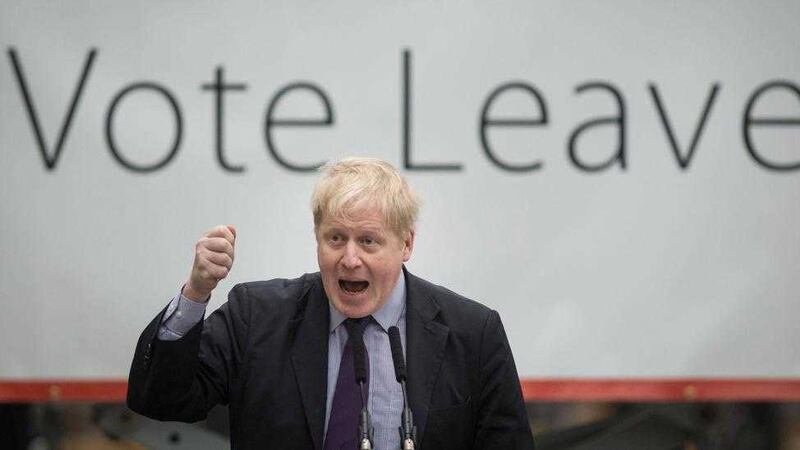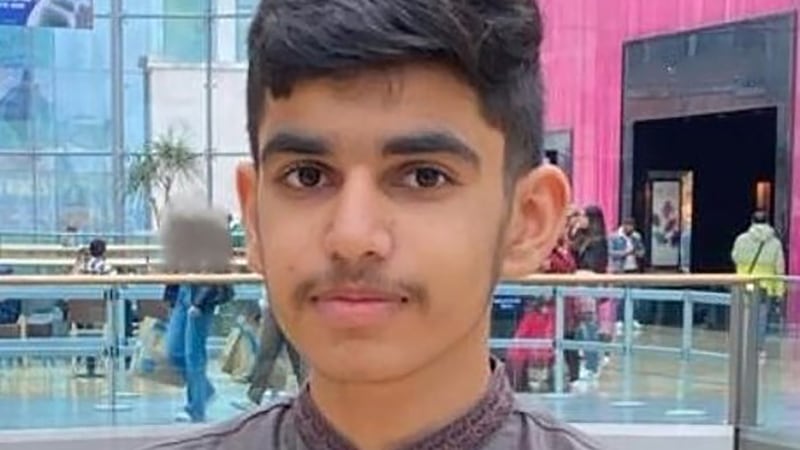THE first day of the official referendum campaign saw the two sides sparring over the potential impact of British withdrawal from the EU on the NHS.
The Remain and Leave camps rolled out their big guns, with Boris Johnson, Michael Gove and former chancellor Lord (Alistair) Darling lining up to do battle ahead of the June 23 vote.
The Vote Leave campaign unveiled a poster claiming the UK is sending £350 million a week to the EU, which could otherwise be spent on the NHS.
But the claim was savaged as "spurious and outrageously misleading" by health unions, who said cash shortages in the health service were made in Westminster not Brussels, while Downing Street insisted that Brexit would mean "less money for the NHS".
Meanwhile, Ukip leader Nigel Farage challenged David Cameron to a one-on-one debate on the claims contained in a leaflet sent out to households around the country, setting out the government case for continued EU membership.
Handing his own copy of the document back to 10 Downing Street, Mr Farage also took a swipe at "anti-British" US President Barack Obama after the White House indicated he may voice his support for a Remain vote during a visit to the UK next week.
The Vote Leave organisation, backed by Mr Johnson and Cabinet heavyweight Mr Gove, moved the NHS centre stage in the campaign as it claimed a large chunk of the UK's £10.6 billion net contribution to Brussels could be diverted to medical care if Britain quits the EU.
Unveiling the campaign's first billboard ad, Labour MP Graham Stringer said: "Our NHS is struggling to cope with rising demand and needs the support that is currently siphoned off to Brussels.
"Instead of handing over £350 million a week to the EU we should spend our money on our priorities like the NHS.
"If we take back control of our borders, democracy and economy on June 23 we can ensure that the UK and our health service prospers for this and future generations."
But TUC general secretary Frances O'Grady responded: "It's not up to the Leave campaign to set NHS funding. The reality is that Brexit would plunge the NHS into a staffing crisis, which could lead to the longest hospital waiting lists we've ever known. And with experts warning that Brexit would hit Britain's economy, the consequences for NHS funding would be dire."
And Unite national officer for health Barrie Brown said: "It is spurious and outrageously misleading to blame the EU for problems that are home-grown and made worse by the Tory government.
"And it defies belief to think that Boris Johnson and Michael Gove would do a massive political U-turn and divert billions of EU cash into the NHS – when they have supported real cuts to the NHS budget and been enthusiastic flag-wavers for the privatisation and break-up of the NHS."
Prime minister David Cameron's official spokeswoman said: "A strong NHS needs a strong economy and the Prime Minister has been very clear that our economy is stronger in the EU.
"You have to look at some of those who have expertise and experience of working in the NHS, like Sir David Nicholson, the former chief executive of the health service, who has said that leaving the EU would damage the economy and mean less money for the NHS."
London Mayor Mr Johnson was spearheading a "Brexit blitz" of speeches across the UK with an address in Manchester, ahead of weekend events in Leeds and Newcastle.
Justice secretary Mr Gove is expected to echo the NHS warnings during a speech in Nottingham, as fellow leading Leave figures Commons Leader Chris Grayling and Northern Ireland Secretary Theresa Villiers also step up the Brexit campaign in the coming days.
But Lord Darling accused Brexit backers of offering "Project Fantasy", as he warned that leaving would threaten Britain's economy.
The Labour peer, who headed up the campaign against Scottish independence, acknowledged that either side could win the EU contest.
"This is a very, very close vote. No one can predict with any certainty what is likely to happen," he told a Britain Stronger In Europe event in London.
"I hope we will win and I hope we will win well but we need to get the support of people the length and breadth of the country, no matter what there political allegiance has been in the past.
"We need every single vote. It is going to be very close. Every vote counts."







